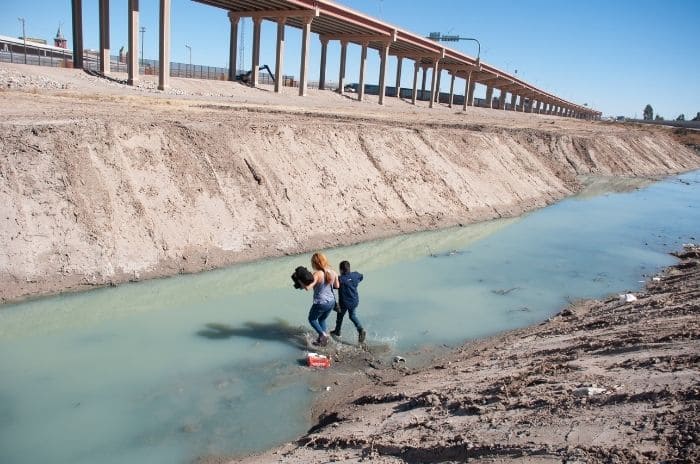“What do young Europeans think about the link between migration and climate change?” – Action Aid Report on Greece

According to the results of the survey conducted by ActionAid, in the framework of the pan-European campaign “No to Climate Change, Yes to Climate Change”, young people in Greece would give a vote of confidence to politicians who put climate change at the top of their agenda. The research attempts to investigate the attitude of 15-35 year olds towards climate change and migration.
In particular, it appears that the willingness to take action is high, with about eight in ten young people saying that they have voted or would vote for politicians who give priority to tackling climate change and (climate) migration (75%), while 67% say that they would have participated or have participated in a demonstration on these issues.
In particular, according to the survey, young people in Greece are calling on the EU to prioritize tackling climate change. Climate change and the environmental crisis are also the third most serious problems in the world, after the economy and poverty. At European level, climate change and issues such as droughts, floods and fires, as well as environmental degradation, are the most serious problems in the world for young people.
Only 13% believe that the movement of large populations is among the most important issues facing the world. The term “climate migration” is well known in Europe, with 33% saying they have heard a lot or enough about “climate migrants”, a percentage that in Greece amounts to only 23%.
Despite the low rate, however, more than half of Greek youth (55%) agree that climate migrants should receive the same legal protection as those who migrate for war or persecution.
In Greece, according to the survey results, the willingness to take action is high with about eight out of ten young people stating that they have voted or would vote for politicians who give priority to tackling climate change and climate migration (75%). while 67% state that they would have participated or have participated in a demonstration on these issues.
It is noteworthy that 72% believe that if government plans do not include measures against the environmental crisis and climate change, this is bad for the economy. At the same time, young people have a negative view of the current economic model. Eight out of ten (81%) believe that the economy in Greece serves the interests of the rich and powerful and 75% feel that our consumer habits are not sustainable.
In summary:
Slightly less than half of young Greeks (46%) feel more or less worried about climate change, as does the European average (46%).
For young Greeks, “climate change” is the third most serious problem in the world, after “economic situation / unemployment” and “poverty / hunger”.
Young Greeks have a negative view of the current economic model. Eight out of ten (81%) believe that the economy in Greece serves the interests of the rich and powerful. Somewhat fewer (75%) feel that our consumer habits are not sustainable.
Young Greeks tend to support government action against climate change. It is noteworthy that 72% believe that if government plans do not include measures against pollution and climate change, this is bad for the economy.
The majority of young Greeks (52%) believe that it is mainly the responsibility of the most economically developed countries to reduce the effects of climate change.
The knowledge of young Greeks about climate migration is limited, even compared to the European average: 23% of them have heard a lot or enough about the term “climate migrants” compared to 33% of young people in Europe.
Despite the low rate, however, more than half of Greek youth (55%) agree that climate migrants should receive the same legal protection as those who migrate for war or persecution.
Willingness to take action is high, with about eight in ten young people saying they have voted or would vote for politicians who prioritize climate change and (climate) migration (75%), while 67% say they would have participated or have take part in a demonstration on these issues.
The ActionAid survey was conducted in 23 EU countries on the attitude of young people aged 15-35.
